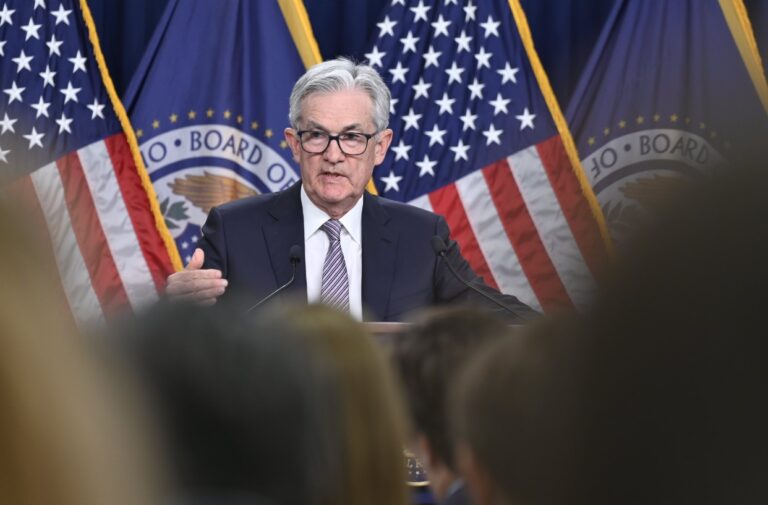Today, markets are reflecting the perception that central banks have ended the cycle of global rate hikes. Signs of more accommodative monetary policy are coming from both U.S. data and statements from the European Central Bank (ECB).
Table of Contents
Situation in Asia-Pacific
In Asia-Pacific, equities posted gains as bets strengthened that interest rates had reached their global highs, causing bond yields to fall.
In Japan, 10-year government bond yields fell to their lowest since mid-August, standing at 0.62 percent, following a similar trend to that of equivalent U.S. Treasury yields. The idea that the Federal Reserve has concluded its monetary policy tightening was solidified by disappointing labor market data.
Signs in Europe
In Europe, too, Isabel Schnabel’s words reinforced the idea that the ECB’s aggressive monetary policy is coming to an end. Until now, there had been a significant gap between market views, which were confident in the end of rate hikes, and the more cautious positions of Fed and ECB officials.
European equities are poised for a bullish start to the day, following Asia-Pacific’s lead. This is supported by a decline in bond yields and growing confidence that the tightening cycle at major central banks has peaked.
The context in the United States
In the United States, the surge in U.S. stock futures followed a further slowdown in the labor market, sparking growing speculation about the prospect of the Federal Reserve opting for a rate cut over the next year to prevent a potential recession.
The situation has been emphasized by the fact that yields on 10-year U.S. government bonds have hit their lowest level in three months. Thus providing a clear signal that markets are virtually taking an imminent rate-cutting move by the Fed for granted.
Global implications
Expectations of lower borrowing costs are currently fueling enthusiasm in equity markets, with technology stocks particularly benefiting.
The Federal Reserve’s accommodative rhetoric, the European Central Bank’s (ECB) statements, and the Reserve Bank of Australia’s decision to keep its monetary policy unchanged are solidifying bets that, globally, interest rates will not be increased further.
In addition, the Bank of Canada is also expected to adopt a pause stance, keeping interest rates stable.
Upcoming Fed and ECB appointments
Against this backdrop, market participants will be particularly attentive to the upcoming meetings of the Federal Reserve and the European Central Bank. The focus is on seeking confirmation and clear indications of future monetary policies from these globally significant financial institutions.
Current market interpretation suggests a signal that the cycle of global rate increases is coming to an end, with expectations of a tilt toward more accommodative monetary policies in the near future. This outlook has generated expectations of lower borrowing costs, boosting equity markets, with technology stocks particularly benefiting.
The Federal Reserve’s accommodative rhetoric, the European Central Bank’s statements in anticipation of 2024, and the Reserve Bank of Australia’s decision to keep monetary policy unchanged help solidify the idea that interest rates globally may not rise further. In addition, the Bank of Canada is also expected to adopt a pause stance, keeping rates unchanged.
In this climate, financial markets are preparing for a period of increased attention and adaptation to global monetary policy dynamics.
Read also: How central banks affect interest rates: a comprehensive guide












